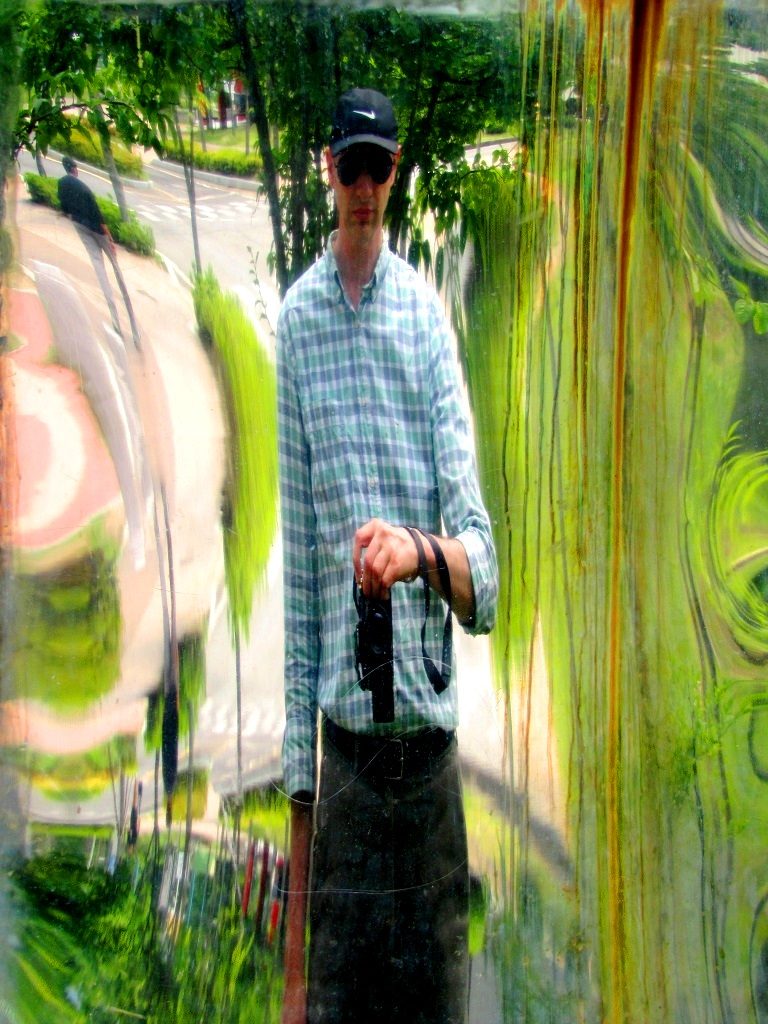Reflections On Living Seriously
I dislike surprises of the sort that are imposed upon one by other people — surprise visits, surprise parties, surprise invitations, and the like. The reason is simple: I do not waste time, and therefore experience imposed surprises not as welcome salvation from life’s tedium, but as an interruption of something I had previously judged to be essentially worthwhile or necessary in favor of something I have not so judged, and which, in any case, surely could have waited until I was ready to engage with it. Furthermore, and most importantly, since most of the activities to which I dedicate my time and energy are thinking activities of one sort or another — reading, writing, conversing, teaching, or quiet contemplation — a surprise usually represents not merely a temporal distraction, but the sudden derailment of a thought process, typically a thought process that has been slowly developing toward its current stage for hours or days. My immediate awareness in such moments of surprise, inarticulate but palpable, even physically discomfiting, is the sense of a glass-blower who has been shaken from behind, knocking his newly-developing crystal to the floor. As the precious object falls, I hear myself saying “Hello” to the surprise guest a little too loudly, as though trying to drown out the sound of the shattering crystal, which would be too heartbreaking and infuriating to attend to fully.
This is the story of a thinking man’s hell. It is also the story of every child’s hell in the modern world, since every child, in his soul, is a potential thinking man to some degree. For this is the universal reality, and the specifically intended effect, of the school bell — the pleasant surprise that repeatedly interrupts a young soul’s attempts to learn the calmness of rhythmic deep breathing, thereby shattering every delicate, crystalline thought in mid-development.
Recently, a student who knows me well entertained herself (and me) by drawing an antithetical cartoon image of me teaching philosophy while dressed in jeans and a T-shirt with a large sportswear logo emblazoned across the front.
Explaining the image, she wrote:
I just tried to imagine a very discordant, extreme situation about my serious teacher, and I thought the Champion T-shirt would be appropriate, because it is a very teenage T-shirt.
It is always interesting to me when people describe me with phrases such as “my serious teacher.” I instinctively feel a need to qualify the description “serious.”
I do believe I am a serious person, which means something like this: I don’t like to do things that are unrelated to the philosophic life; I prefer to spend all my time, or as much as humanly possible, in the activities, thoughts, and relationships that fit into my picture of a meaningful life, which is a life of seeking wisdom, without wasting time or energy on accidental or meaningless things.
However, my idea of seriousness does not involve being artificially somber or severe about everything all the time. I enjoy plenty of lighthearted or playful things, but only if they fit naturally and comfortably into my picture of the best life. My idea of being serious has nothing to do with acting serious all the time, like a drama character, because what normal people call “serious” has nothing to do with truly being serious in the philosophic sense. A serious life (proper sense) is a life directed toward the true, the good, and the beautiful. Whatever contributes to that life has a place in it, even if it does not fit the TV image of “a serious man.”
Humor and playfulness, maybe even some private silliness, are a natural and, I would say, necessary part of a thinking life, partly because they are the soul’s way of reviving its energy after hard effort, and of escaping from the many negative feelings about life or humanity which often arise for thoughtful people when they look at the world around them honestly.
In fact, humor and playfulness are much more than just a way of relaxing and escaping. A certain kind of internal, quiet, private playfulness (especially looking at life or oneself in a silly way) may actually be a necessary condition for serious thought. For serious thought — I mean the most serious thought — involves looking at the world in uncommon ways, seeing things that normal social life trains us not to notice. This requires breaking free from the normal, habituated ways of thinking and feeling, and also an ability to look at your own habitual experience with irony and skepticism. An ability to see genuine silliness in yourself or your experience is clearly related to the higher kind of thinking, because it helps you step out of the socially-programmed “normal thinking” that controls us most of the time. A person who is always rigid and sober about thinking the right way or the proper things will never be able to see life from a truly new or higher perspective.
The most essential first step in any philosophic development — and the most difficult step, as it contradicts all our habits and learned biases — is to let go of the socially-molded lenses through which we inevitably view and judge our experience, and which entrench us in a false sense of certainty about so many things, including and especially about our visual apparatus itself. The kind of private, somewhat anti-social form of playfulness that normal people would see as simply unserious or silly behavior is one of the tools for breaking free of those rigid mental habits, so that you may begin to understand yourself from outside of the social expectations that form and regulate our lives in so many ways.
And yes, the qualification that this playfulness be private and somewhat anti-social is indispensable. In our postmodern era, the notion of “playfulness” is often used as a pseudo-sophisticated rationalization for trivial, wanton, or unbridled public behavior — as though fitting in with the age and letting go of one’s social reserve could be intellectually beneficial. Quite the contrary; such socially-sanctioned or popular buffoonery or debauchery merely entrenches one in one’s worst socially-trained mental habits, with the added spiritual chains of a phony, quasi-theoretical justification for remaining so entrenched. The playfulness or lightness that contributes to thought, rather than inhibiting it, must be, if not directly anti-social, certainly extra-social, which is to say somewhat oblivious to social norms or expectations, especially the social norms regarding playfulness itself.



